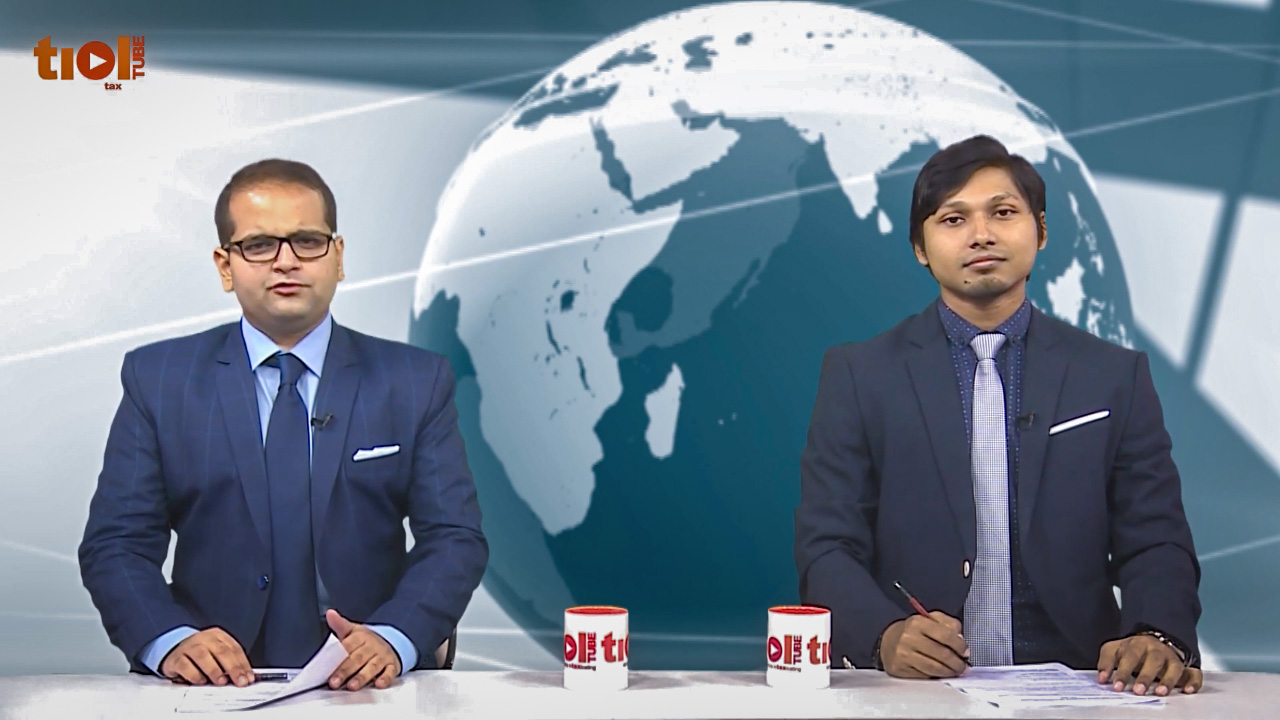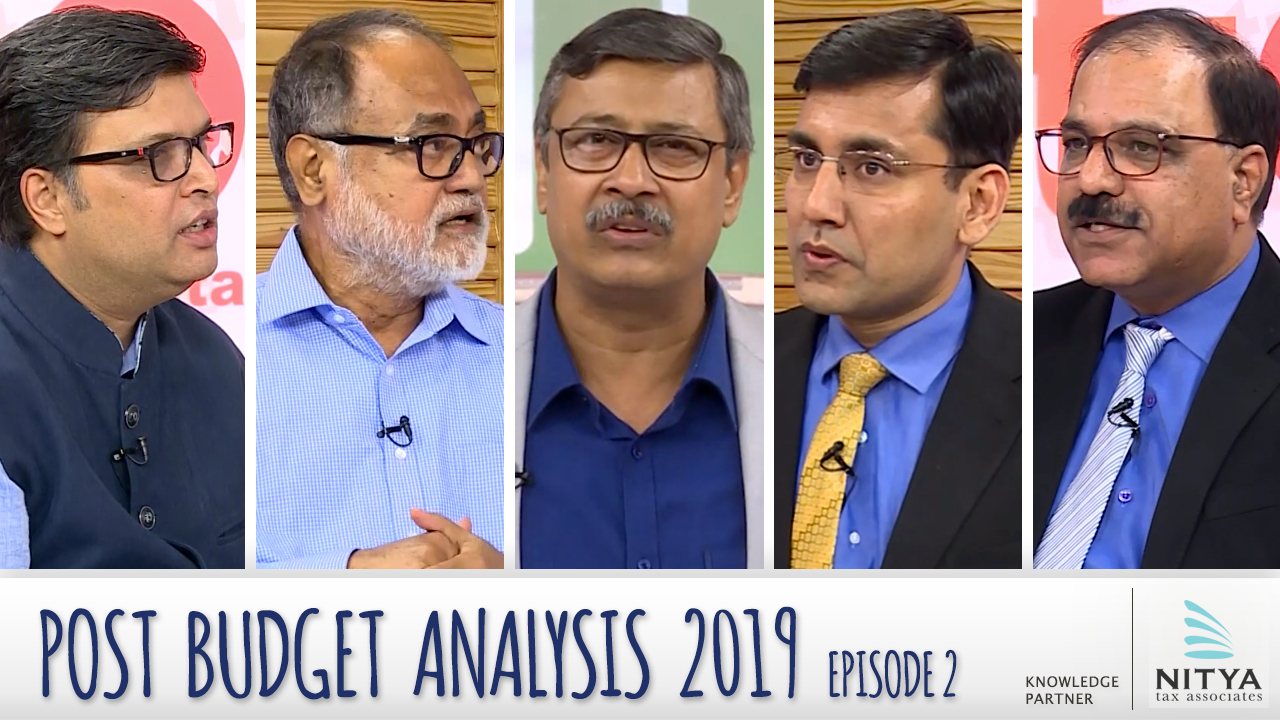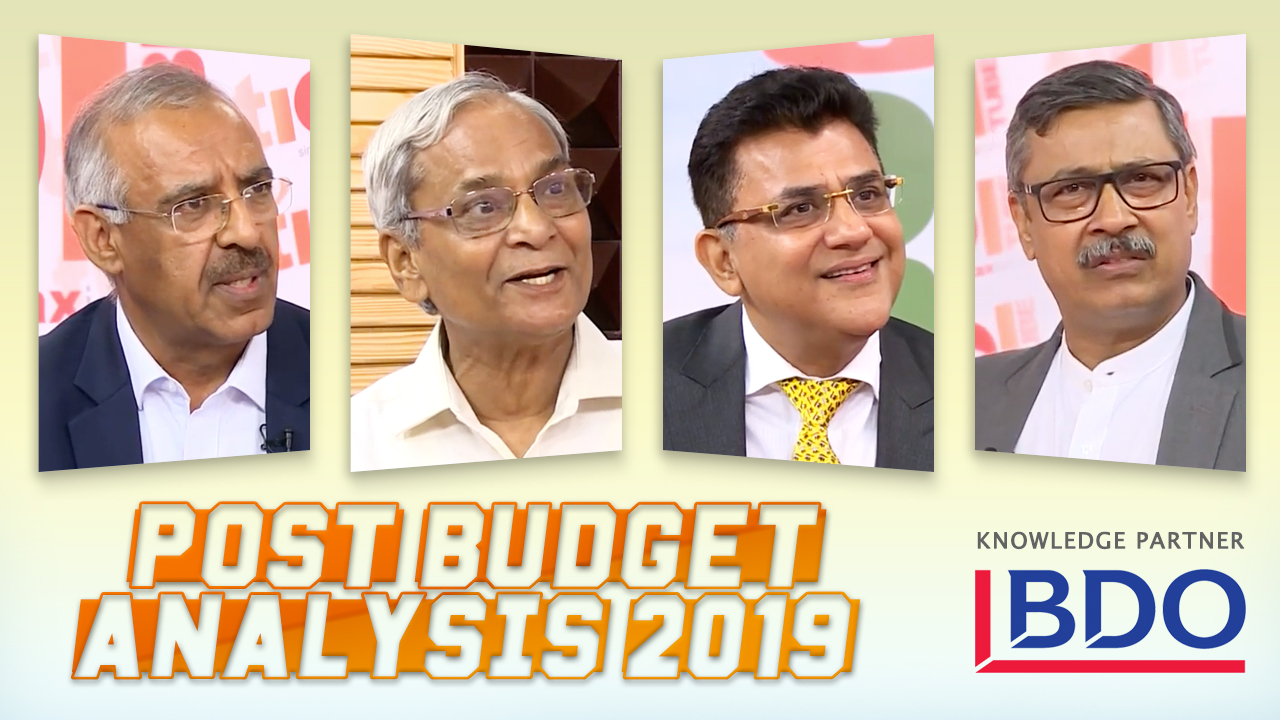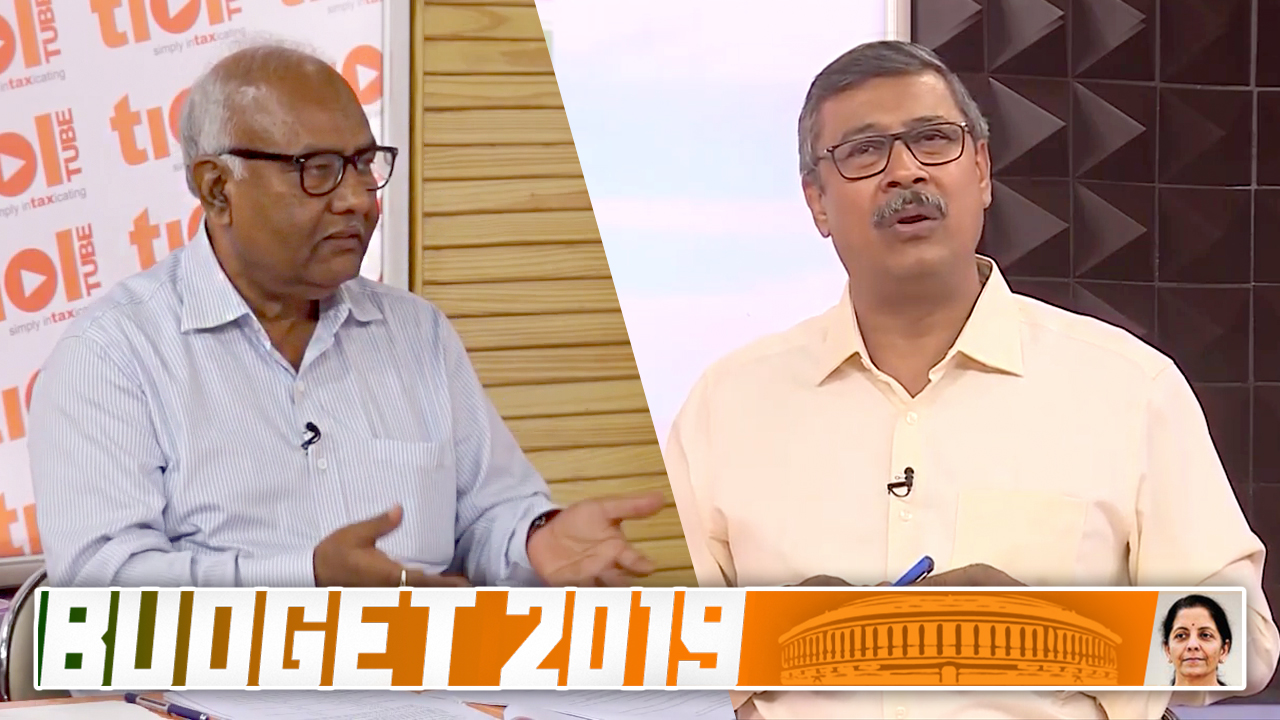|
SERVICE TAX
2019-TIOL-2122-CESTAT-ALL
Cyquator Media Services Pvt Ltd Vs CCGST
ST - The assessee-company provides Call Centre Services & pays service tax after payment of duty and availment of Cenvat credit on various input goods, services & capital goods - It had availed Cenvat credit during the relevant period - SCN was issued by invoking extended limitation, proposing reversal of the same - It was alleged that the service provider are in the name of call centre, whereas the same should have been in the name of their head office - Credit was also sought to be denied on grounds that the invoice was not in the assessee's name & so were ineligible documents - Further reversal of credit was sought on grounds that it had been availed prior to obtaining registration - Such demands for reversal were confirmed upon adjudication - Hence the present appeal by the assessee.
Held: The assessee's contention is tenable inasmuch as output services were being provided from Sector 58 Call Centre and the services were being received at the said premises, the invoices showing the address the place of actual receipt of the inputs services and their consumption for providing output services, is appropriate - No reference is made by the adjudicating authority to any provision of law requiring the invoices to be in the name of the head office - Besides, it is well settled that substantial benefits cannot be denied on the basis of some procedural lapses - Otherwise also the defect pointed out by the Revenue in the invoices, if any, are rectifiable defects and the denial on the said basis cannot be allowed - Moreover, the issue regarding the invoices not being in the assessee's name is a discrepancy which arose on account of the assessee-company's merger with another firm - The supplier of the inputs was not timely informed of the same so as to amend the invoice to incorporate the new name - This too is a temporary anomaly & subsequent invoices were issued in the assessee's name - Hence the denial of credit is unjustifed: CESTAT
- Assessee's appeal allowed: ALLAHABAD CESTAT
2019-TIOL-2121-CESTAT-ALL
Indian Potash Ltd Vs CST
ST - The assessee entered into a contract for processing of raw milk received from M/s Mother Dairy - These processes included chilling, pasteurization, homogenization and standardization to convert raw milk to toned milk - This fully converted milk is transported by the assessee to Mother Dairy - Also, a portion of the toned milk dispatched by the assessee to Mother Dairy is received back by the assessee for further testing - The Revenue opined that the activities undertaken by the assessee for M/s Mother Dairy are classifiable under BAS - Two SCNs were issued for the relevant periods - On adjudication, duty demand was confirmed with interest & equivalent penalty u/s 78 - Penalty was also imposed u/s 76 & 77 of the Finance Act - Hence the present appeal.
Held: The definition of BAS excludes any service which amounts to manufacture of excisable goods - Hence it can safely be concluded that if the processes or production for and on behalf of another person is tantamount to manufacture, the same would not be covered under BAS - Also considering chapter note 6 of chapter 4, the same is in the nature of a deeming clause holding the activities as amounting to manufacture, in case the same are clearly not covered by the definition of manufacture appearing in section 2(f) of the Central Excise Act - Admittedly, the processes undertaken by the assessee are for rendering raw milk as marketable product for ultimate consumption of the general public & as such gets covered by the chapter note conferring a deeming status - Hence the O-i-O confirming duty demand merits being quashed: CESTAT
- Assessee's appeal allowed: ALLAHABAD CESTAT
CENTRAL EXCISE
2019-TIOL-2120-CESTAT-BANG
Anna Aluminium Company Pvt Ltd Vs CCT & CE
CX - The assessee's manufacturing godown from where the goods were manufactured and the sales godown (depot) from where the goods were sold to the buyers were located in the same premises - The goods were normally transferred from factory to the depot on excise invoices and assessee was clearing the goods to the dealers from the depot under commercial invoice - The implementation of SAP software caused certain technical glitch and there were instances wherein the value of goods cleared from the factory worked out to be more than the value of goods indicated in the commercial invoices raised from the depot - On account of the fault in SAP software, it happened that with regard to certain clearances, excess duty was paid and with regard to certain clearances, short duty was paid - Further, when this anomaly was noticed during audit, the assessee paid the entire short duty at the instance of Department along with interest and also requested the Department to adjust the excess duty which was paid excess of actual liability - But the Department did not allow the same and asked the assessee to file a refund claim and accordingly, the assessee filed refund claim which was rejected by adjudicating authority partly on the ground of time bar and partly was sanctioned but credited to the Consumer Welfare Fund by holding that the assessee has failed the test of unjust enrichment - Further the first appellate authority rejected the refund only on the ground of unjust enrichment - The demand is not barred by limitation and extended period has been rightly invoked - As far as the request of assessee regarding the adjustment of excess duty paid with the short payment of duty, this issue is no more res integra and has been settled by various decisions of Tribunal which has allowed the adjustment of duty - It is a fact that the assessee has paid entire short paid duty along with interest and he wanted to adjust the excess paid duty - The adjustment of duty is permitted under law and the benefit of the same ought to have been allowed to assessee but the same was not allowed by Commissioner(A) - Therefore assessee is entitled to adjustment of excess duty paid by them against the short paid duty - As far as interest is concerned, assessee is liable for interest on the short paid duty which is to be determined after adjusting the excess duty paid - Further, the refund has been wrongly rejected on the ground of unjust enrichment whereas in the facts and circumstances, unjust enrichment is not applicable - Consequently, assessee is entitled to adjustment of excess duty paid against the short duty - For the purpose of quantification of duty liability after adjustment and for quantification of interest liability, matter remanded to the original authority for adjustment of duties and also for determination of interest payable by assessee - The penalties imposed by impugned orders are not sustainable in law: CESTAT
- Appeals disposed of: BANGALORE CESTAT
2019-TIOL-2119-CESTAT-BANG
Alutop Vs CCT
CX - The assessee is engaged in activity of manufacture of metal caps and printed aluminium sheets and availed cenvat credit on inputs such as paints, varnishes, reducer and industrial gas which are used in manufacture of their final product - The assessee is also doing job work and they have reversed CENVAT credit on the quantum of inputs used for processing of job work goods in their account credit - Later on, they realized that as per Rule 3 & 4 of CCR, 2004, they need not reverse the said credit which was used for processing of job work goods as the said clearance under job work cannot be equated as goods cleared without payment of duty - Thereafter they filed refund claim under Section 11B of CEA, 1944 to claim the duty paid/reversed on inputs used for processing of job work goods - Thereafter a SCN proposing to reject the refund claim was issued to assessee and after following the due process, the original authority rejected the refund claim - In the impugned order, the Commissioner (A) has failed to consider the clause c of proviso to Section 11B(2) of CEA, 1944 which provides an exception - As per clause c proviso to Section 11B(2) of the Act, if such refund of amount of duty paid on excisable goods used as input in accordance with rule made, or any notification made under this Act, the same has to be credited to the applicant instead of Consumer Welfare Fund - It clearly emerges that in such a situation, the bar of unjust enrichment will not be applicable - In case of Dura synex Ltd., the Division Bench of the Tribunal at Mumbai have considered the identical issue - By following the ratios of said decision, this issue is no more res integra and has been settled in favour of assessee: CESTAT
- Appeal allowed: BANGALORE CESTAT
2019-TIOL-2118-CESTAT-MUM
Allover And Lace Pvt Ltd Vs CCE
CX - The assessee-company is engaged in embroidery on cotton & man-made fabrics, categorized as excisable goods & classifiable under Sub Heading 5805.19 of the CETA 1985 - During the relevant period, the assessee carried out such activity on job work basis on fabrics received from the customers & paid duty on the value arrived at by taking processing charges and value of cloth received from the customers - On verification of records, the Revenue contended that the assessee had not included the value of 0.62 metres of unembroidered cloth in the assessable value & so had short-paid Excise duty - It was also contended that the assessee did not include the value of cloth received from customers & paid duty only on processing charges claimed from them - Hence more short-payment of duty was detected by means of undervaluation - SCNs were issued proposing to raise duty demands - On adjudication, the demands were confirmed along with equivalent penalty - The same was upheld by the Commr.(A) - Hence the present appeal by the assessee.
Held: Regarding the duty demand raised on grounds that the assessee only considered the value of length of the processed cloth & not the value of the end pieces of cloth, it stands settled from the decision in Gemini Dyeing & Printing Mills Ltd. vs. CCE, Bangalore that the length of processed cloth be taken for valuation purposes and the wastage/shrinkage has to be excluded - It also follows from the decision in Ramkumar Mills Pvt. Ltd. vs. CCE, Bangalore that extended period of limitation cannot be invoked if there are conflicting views which require a reference to the Larger Bench - Considering the date of the SCN and the period of the dispute, the SCN is barred by limitation since it was issued beyond the normal period prescribed u/s 11A of the CEA 1944 - Moreover, there is no such bifurcation or evidence in the SCN to show that the value of cloth taken was less than the actual value considered for valuation of duty - The demand was confirmed based solely on audit objection without any supporting evidence being produced - Hence the extended limitation invoked is unsustainable - The O-i-A in challenge is quashed: CESTAT
- MUMBAI CESTAT
CUSTOMS
NOTIFICATION
dgft18cir027
Order of the High Court, Hyderabad in W.P:No 34771/2014in in respect of item at EXIM Code 1005 Maize (Corn) CASE LAWS
2019-TIOL-1595-HC-KERALA-CUS
NL Technologies Pvt Ltd Vs CC
Cus - Electronic waste (e-waste) - Non-production of Extended Producer Responsibility - Authorisation (EPR-Authorisation) under the E-waste (Management) Rules, 2016 at the time of import of the goods constitutes sufficient ground for confiscation of the goods under Section 111(d) of the Customs Act - Company had requested the Commissioner to grant permission for re-export of the goods and exercised the option to redeem the goods for that purpose, therefore, the Commissioner imposed a redemption fine of Rs.4,00,000/- on the company to enable it to re-export the goods - The Tribunal has reduced the amount of redemption fine to Rs.2,00,000/- and Bench finds no sufficient ground to further reduce the amount of redemption fine - mens rea is not essential to impose penalty in exercise of the power under provision of s.112(a) of Customs Act, 1962 - Tribunal has reduced the penalty from Rs.50,000/- to Rs.25,000/- and there is no sufficient ground to further reduce the amount of penalty – Appeal fails, hence dismissed: High Court [para 20 to 23]
- Appeal dismissed: KERALA HIGH COURT 2019-TIOL-1593-HC-MAD-CUS
Royal Impex Vs CC
Cus - Petition pertains to import of Pigeon Peas i.e., Toor Dal - a consignment of said goods was imported pursuant to a contract dated 02.08.2018, bearing Contract No.2562/PSPIL/786/18-19, vide Bill of Lading No.MEDUTZ001750, dated 20.02.2019 and the Bill of Entry Number is 2922960 dated 20.04.2019 - there is a notification being notification No.19/2015-2020 issued by the Director General of Foreign Trade with regard to importability of said goods - This notification pertains to certain restrictions with regard to importability qua said goods - this notification was assailed interalia by the writ petitioner by way of writ petitions in this Court, being W.P.Nos.21454 and 21455 of 2018 and this Court, had, vide order dated 23.08.2018, granted interim orders, staying the operation of the said notification - stay was thereafter extended and it was operating - While the stay was operating, writ petitioner and several other importers had imported said goods vide another consignment and these imports ran into rough weather - this writ petitioner along with several other similarly placed importers filed writ petitions in this Court seeking release of the other consignment and issue of detention certificate for waiver of demurrage and container detention charges - this batch of 66 writ petitions came to be disposed of by another Judge in and by a final order dated 27.02.2019, which came to be passed after hearing both sides - undisputed position as of today is that the aforementioned order dated 27.02.2019 made by another Single Judge in W.P.No.4403 of 2019 = 2019-TIOL-596-HC-MAD-CUS etc., has neither been reversed nor stayed, therefore, the said order is operating and governing the field - There is also no disputation or disagreement that several other importers like the writ petitioner or in other words, similarly placed importers have had the benefit of release and issue of detention certificate with regard to demurrage and container detention charges, pursuant to this order dated 27.02.2019 made in a batch of 66 writ petitions - If the importers, who are similarly placed qua writ petitioner, have got the benefit, this Court is of the considered view that writ petitioner herein is also entitled to the same benefit as no exceptional circumstances have been pointed out to say that this writ petitioner stands on a different putting and is not entitled to a similar relief - instant writ petition is ordered directing the respondents, more particularly, the second respondent to release the writ petitioner's consignment of 'Toor Whole (Pigeon Peas)' imported by the petitioners under Bill of Entry No.2922960 dated 20.04.2019, under cover of Bill of Lading No.MEDUTZ001750 dated 20.02.2019, covered under Contract No.2562/PSPIL/786/18-19 dated 02.08.2018, subject to writ petitioner paying 10% of the invoice value towards duty and furnishing bank guarantee for another 10% within a fortnight from the date of receipt of a copy of this order – Petition disposed of: High Court [para 14, 17, 18]
- Petition disposed of: MADRAS HIGH COURT
2019-TIOL-1592-HC-MAD-CUS
Unik Traders Vs DRI
Cus - Raising doubts about 'Certificates of Origin' (COO) produced by the writ petitioner to demonstrate the said consignment originates from Sri Lanka, inter alia, SCN was issued on 05.05.2019 - Petition filed against the same.
Held: Court deems it appropriate to not to interfere with the impugned SCN by holding that it is open to respondents to issue an addendum or corrigendum to impugned SCN adverting to CMA agreement and mentioning as to how COOs were verified and as to why they are unacceptable, in an appropriate manner without disclosing the contents of aforesaid communications dated 23.4.2018 and 15.5.2018 (immunity / privilege for which has been sustained) - If it is done, it will give adequate opportunity to writ petitioner noticee to meet the impugned SCN better with greater specificity on merits - If respondents do not issue addendum / corrigendum within a fortnight from the date of receipt of a copy of this order, it is open to writ petitioner to respond to impugned SCN raising this issue also - Reason why this court refrains from interfering with the impugned SCN is owing to the principle that writ jurisdiction under Article 226 of the Constitution being a discretionary jurisdiction will ordinarily not be exercised for quashing a SCN and that it will be done only in rare and exceptional cases, if a SCN is found to be wholly without jurisdiction or wholly illegal for one reason or the other - Writ petition fails, hence dismissed: HC [para 21, 22, 25]
- Petition dismissed: MADRAS HIGH COURT: MADRAS HIGH COURT
2019-TIOL-1591-HC-P&H-CUS
Harkaran Dass Vedpal Vs UoI
Cus - Writ Petitions have been filed seeking quashing of SCNs dated 22.02.2009 & 19.03.2009 on theground of jurisdiction of DRI to issue SCN and delayed/no adjudication of impugned SCNs raising question of limitation.
Held: SCNs were issued in 2009and concededly are still pending adjudication inspite of no stay on continuing of proceedings/liberty granted to proceed withthe adjudication of SCNs - From a perusal of amended sub-section (9) and newly inserted sub-section (9A) in section 28 w.e.f 29.03.2018, it is evident that the authorities are bound to pass order within one year from thedate of the Show Cause notice in cases of Customs duty not paid/short levied and said period may be extended for afurther period of one year by any officer senior in rank to the proper officer havingregard to the circumstances under which proper officer was prevented from passing an order beforethe expiry/lapse of the initial stipulated one year - Thus the onlyoutcome of non-adjudication by proper officer within one year without invoking of sub-section (9A) or within the extended period of one year, if any, by a seniorofficer in terms of the first proviso to sub-section (9) would be lapsing of notice, asprovided in the second proviso to the sub-section (9) of the amended section 28 of the Customs Act, 1962 - contention of respondents that amended section 28 is not applicable deserves to be rejected because amendment is not retrospective but it is certainly retroactive - Mandatory limitation would be applicable treating pending show cause notice as if issued on 29.03.2018 -Amendment of section 28 came into force w.e.f 29.03.2018 and in the case of the present petitioners, till date no order has been passed - applying the principles of retroactiveamendment, respondent was bound to pass order by 28.03.2019 whichrespondent has failed - Respondent has failed to pass order within one year fromthe date of SCN, assuming the date to be 29.03.2018 onthe principle of retroactive operation; still further there is nothing on record to a pointed query to even suggestthat the said period was ever extended by one year by any senior officer in terms of the first proviso to sub-section (9) of amended section 28 - no notice under sub-section (9A) has been served upon by petitioners bythe proper officer seeking the deferment of the commencement of the initial one year notice period forthe reasonsstated in sub-section (9A) - Respondent was, therefore, bound, to either pass an order within one year i.e. by 28.03.2019 in terms of clause (b) of sub-section (9) or within the extended time of one year in terms of first proviso, which is concededly not the case at hand orthe extended period in terms of s.s. (9A) - inevitable conclusion is thatthe SCNs dated22.02.2009 & 19.03.2009 will have to beaccepted as lapsed - Petitions are allowed and SCNs qua the petitioners-partnership firms are quashed: High Court [para 14, 15, 16]
- Petitions allowed: PUNJAB AND HARYANA HIGH COURT
2019-TIOL-2123-CESTAT-MAD
Ganesha Impex Vs CC
Cus - The assessee had filed refund claim under Notfn 102/2007-Cus. for refund of SAD - The two defects pointed out by department for rejecting the refund claim is that the description of goods shown in sales invoices does not tally with the description of goods in bill of entry - It is seen that the description show in the bill of entry is as per the nature or classification of goods whereas in the sales invoices only grades are shown - The department does not have a case that goods were not imported or sold - The sales invoices, Bill of Entry together with Chartered Accountant Certificate is produced by assessee along with refund claim - All these documents together would definitely show that there are no discrepancies with the goods sold - The Tribunal in the case of M/s. Precision Informatic (M) Pvt. Ltd. has held that minor discrepancies cannot disentitle the importer from getting benefit of refund - The second reason for rejection is that Chartered Accountant's Certificate is not proper for the reason it is issued without verification of accounts of assessee - The said notification mandates the furnishing of certificate issued by a statutory auditor - The department does not have a case that certificate was not issued by a statutory auditor - There is no evidence to show that the certificate does not correlate with accounts of assessee - The reasons for rejection of refund are unjustified: CESTAT
- Appeal allowed: CHENNAI CESTAT |







